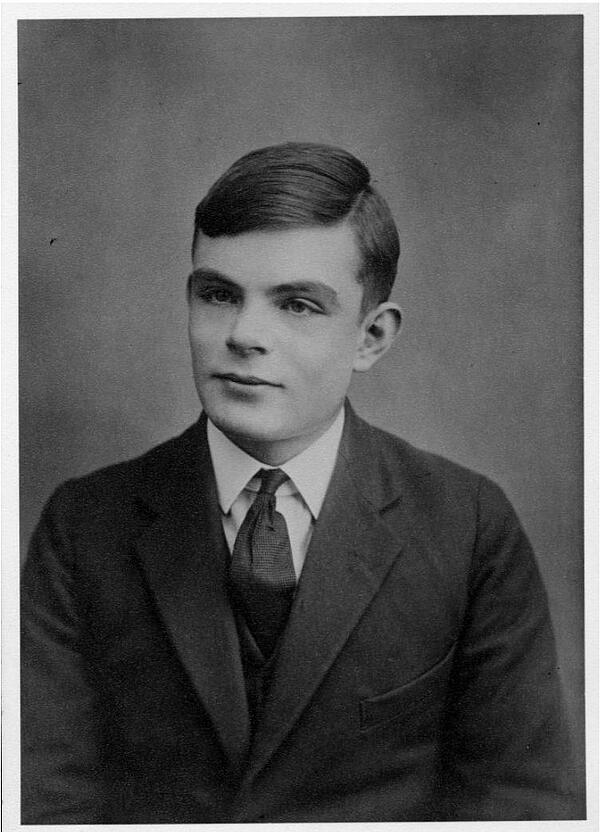Alan Turing
Alan Turing has been described as Britain’s greatest ever code breaker. He was a mathematician, logician and hailed as the father of the modern computer, yet at the time of his death for people knew about Turing’s huge achievements at Bletchley Park.
Born on 23 June 1912 at St. Leonard’s-on-Sea in East Sussex, for much of his childhood Turing was cared for by a retired family while his parents were abroad in India. From a young age, Turing showed great mathematical talent. Turing was seen as different at school and had few friends. One of his closest companions was Christopher Morcom.
Both Morcum and Turing sat entrance exams for King’s College, Cambridhe in December 1929, but Morcom died shortly after taking the exams, leaving Turing devastated.
After winning a scholarship to Cambridge, Turing showed his aptitude for Maths and Science. This was recognised when he became fellow of King’s College at the age of 23. While studying at Cambridge he became fascinated with computing. His research paper explored modern computing - it was to become his seminal work.

His most notable work came at Bletchley Park, where he was able to make a huge impact on the course of World War Two. Turing, along with a team of codebreakers, cracked the Enigma code - an invaluable achievement. As long as the Germans remained unaware of the work dones at Bletchley Park, this knowledge gave the Allies a huge logistical advantage.
Turing was also remembered for his eccentric habits, such as chaining his tea mug to the radiator to keep it safe and travelling to London on foot. He even wore his gas mask while cycling to work to help his hay fever. However, behind his eccentric habits lay the mind of a genius. He built a machine to decode the messages created by the German coding machines - this was the ‘Bombe’.
A significant reason behind Britain’s eventual success in the Battle of the Atlantic was Turing’s work on cracking the Naval Enigma. His success meant that when British Intelligence could pick up on secret messages sent from German Naval High Command to its U-boats.
At the end of the war Turing began work at the University of Manchester where he put more work into his pre-war computation interests. Despite Turing’s significant role in the war effort, the secret nature of Bletchley Park meant that he couldn’t tell anybody apart his role in the war.
Turing faced challenges in his social life. After the war, homosexuality was illegal in Britain, meaning Turing had to keep his sexuality a secret. By 1952, the charged for homosexuality had increased five times compared to 1939 as a result of fears that Britain’s moral fabric was slipping.
Turing published his groundbreaking “Computing Machinery and Intelligence” in 1952, which was to play a fundamental role in the world’s understanding of modern computing. However, his achievements were lost in the face of an increasingly difficult social life.
He was arrested on charges of homosexuality in the 1950s after police found that he was having an affair with a man called Arnold Murray. Both men were arrested and the newspapers, unaware of Turing’s great achievements, painted him in a negative light. He was given the choice of either prison or chemical castration, which was considered a ‘cure’ for homosexuality.
Turing chose the latter and was given a course of stilboestrol, a synthetic version of the female hormone oestrogen. The process physically changed him and he began to grow breasts. His psychiatrist noted that Turing was becoming increasingly mentally unsettled as the treatment progressed.
On 8 June 1954, Turing’s body was found in his bed by his housekeeper. A report stated that he had killed himself on 7 June 1954 with cyanide. Turing’s body was cremated on 12 June 1954.
Gordon Brown issued a public apology for Turing’s treatment in 2008. In the 2014 film The Imitation Game, Benedict Cumberbatch portrayed Turing.
See also: William Tutte
MLA Citation/Reference
"Alan Turing". HistoryLearning.com. 2026. Web.
